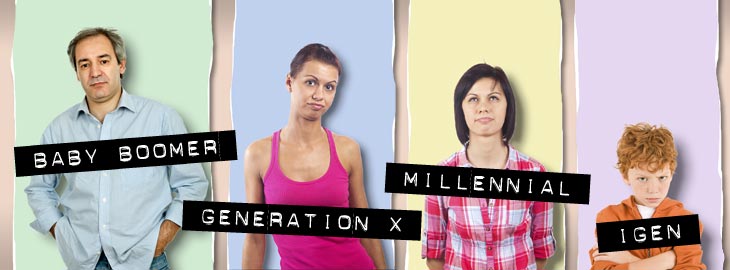
Generation why? A naysayers view on generational norms.
Posted On July 3, 2014
Celebrities like to say that they never read reviews, never listen to the critics. Really? I understand not letting tabloids impact your life, but hearing dissenting ideas can often help sharpen your own. That’s why I was intrigued by this article in Canada’s National Post. In it Robert Fulford laments the “absurd alphabetification of society.” And no, spell check doesn’t think that is a word, either.
Fulford explains the history behind the Gen X label, and points out that it has only been recently that generations have been labeled as anything specific – Boomers, Gen X…and Y and Z (or Millennials and iGen, as the latter are also known). And he has a point. However, when it comes to the way that generations interact in the workforce, the workplace itself has changed in recent years. It has only been in the relatively recent past that employees have become so mobile and focused on their own interests, rather than following traditional paths based on family tradition. Differing attitudes and perspectives were more attributed to social status or the type of work one did (industrial, agricultural, etc.). Today those distinctions are undercurrents to generational attributes, which is why business leaders and marketers spend so much time trying to understand each generation.
Fulford’s larger concern—that the very act of labeling a generation has the power to inform its characteristics more than the simple coincidence of close birth years—also has some validity. While I believe that there are clear similarities, or norms, that exist within each generation, those norms are not universal. The individual should always be considered…but the generation can provide context that explains seemingly illogical behavior or attitudes. That context can help improve communication, and improved communication is rarely a bad thing.